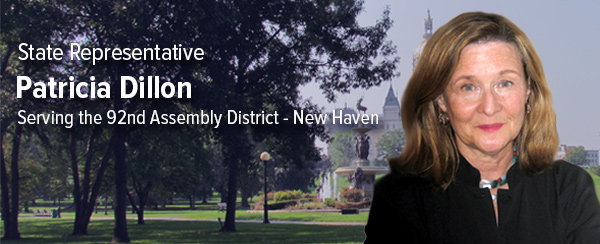
December 27, 2007
PROPERTY TAX KEYED TO INCOME PROPOSED
By Mary E. O’Leary, Register Topics Editor
NEW HAVEN — State Rep. Patricia Dillon, D-New Haven, and the city administration are working on a tax reform proposal that would make municipal property tax income-sensitive.
Dillon has proposed that families not be charged more than 5 percent of their income on their property tax bill, while Mayor John DeStefano Jr. suggested 6 percent, capped at $150,000 adjusted gross income.
However, in municipalities in which less than half of the residents own their own homes, the city suggested there be no cap, according to Sean Matteson, the mayor’s chief of staff. He estimated that plan would affect 11 communities, including New Haven.
The logic is this: Because the tax burden in these towns falls on a smaller group of residents, the maximum number should benefit from some kind of relief.
The final details of a proposal that would tie property tax to income are still being worked out, said Dillon, who wanted to put out the concept early before the General Assembly goes back for its short session starting in February.
The state offers a $500 property tax credit against the state income tax, that starts to phase out at $100,000 in income and stops at $190,000.
“It was very well intentioned, but I just don’t think it works any more. We need to look at the $350 million we are spending on that program right now and try to change it so we can target it to more people,” Dillon said.
Dillon said the state’s two-income, middle-class families are getting hammered by increasing basic costs, property taxes and tuition bills for their children.
“I think a property tax credit that starts to phase out at $100,000 does not help a lot of working families,” Dillon said. “The issue is what is happening to the middle class in the cities.”
Both the city and Dillon are waiting for backup data from the Office of Legislative Services. Dillon said she is particularly interested in getting income data by ZIP code.
“This is something the city is looking forward to working with Pat on. We are glad she has taken ownership of this,” DeStefano said.
The mayor said 18 states have aggressive circuit breakers for tax relief. “We have some circuit breakers, but they are very minor in nature: veterans, the elderly and the blind,” he said.
DeStefano suggested the legislature repeal the credit on the state income tax to help pay for this version. “I think it more directly gets at what that tried to do. How much it would cost is largely dependent on how far you want to go with this,” he said.
Dillon announced her proposal before Gov. M. Jodi Rell weighed back into the discussion, while the city had also put the concept on its legislative agenda for the year.
Rell has a different approach to tax relief and last week said she plans to again introduce a bill that would put a cap on a municipality’s ability to increase tax revenues. Last year, she suggested a 3 percent cap that could be overridden by a referendum of voters, but details of her proposal won’t be ready until the state’s Property Tax Cap Commission issues its report in January. Rell recently she said she is willing to consider Dillon’s approach.
Democratic leaders and the Connecticut Conference of Municipalities have made it clear they will fight Rell’s original suggestion, arguing a cap on revenues takes away local control and will force municipalities to cover rising energy, contract and pension costs by cutting other services, unless the cap is balanced by a boost in state money.
Fred Carstensen, director of the Connecticut Center for Economic Analysis, said the property tax as now constituted is “profoundly corrosive and we are doing significant damage to the quality of life in Connecticut and the quality of life in our communities by our failure to address the problem.”
He said the $500 property tax credit on the state income tax “is an incredibly bad policy” as it sends another $130 million in taxes to the federal government as a result of Connecticut residents reducing their itemization on federal returns by taking the state tax credit.
Carstensen suggested a refundable $1,500 to $2,000 tax credit on the state income tax against the local property tax for an owner-occupied home. To eliminate any increase on federal tax liability and to target low-income families, he suggested phasing out the credit at $50,000 adjusted gross income.
Another approach to boost homeownership across the state is a homestead exemption, where the state would essentially pay the property tax on the first $15,000 of assessed value for every home that is owner occupied.
Carstensen, a professor at the University of Connecticut, said encouraging homeownership for poorer residents would increase school performance by stabilizing attendance at the same schools, as mobility among this population has been tied to poorer academic outcomes.
Mary E. O’Leary can be reached at 789-5731 or moleary@nhregister.com